Iran releases Washington Post reporter Jason Rezaian: A timeline of the journalist's ordeal
Rezaian’s incarceration was the longest, by far, for a Western journalist in Iran since the 1979 revolution
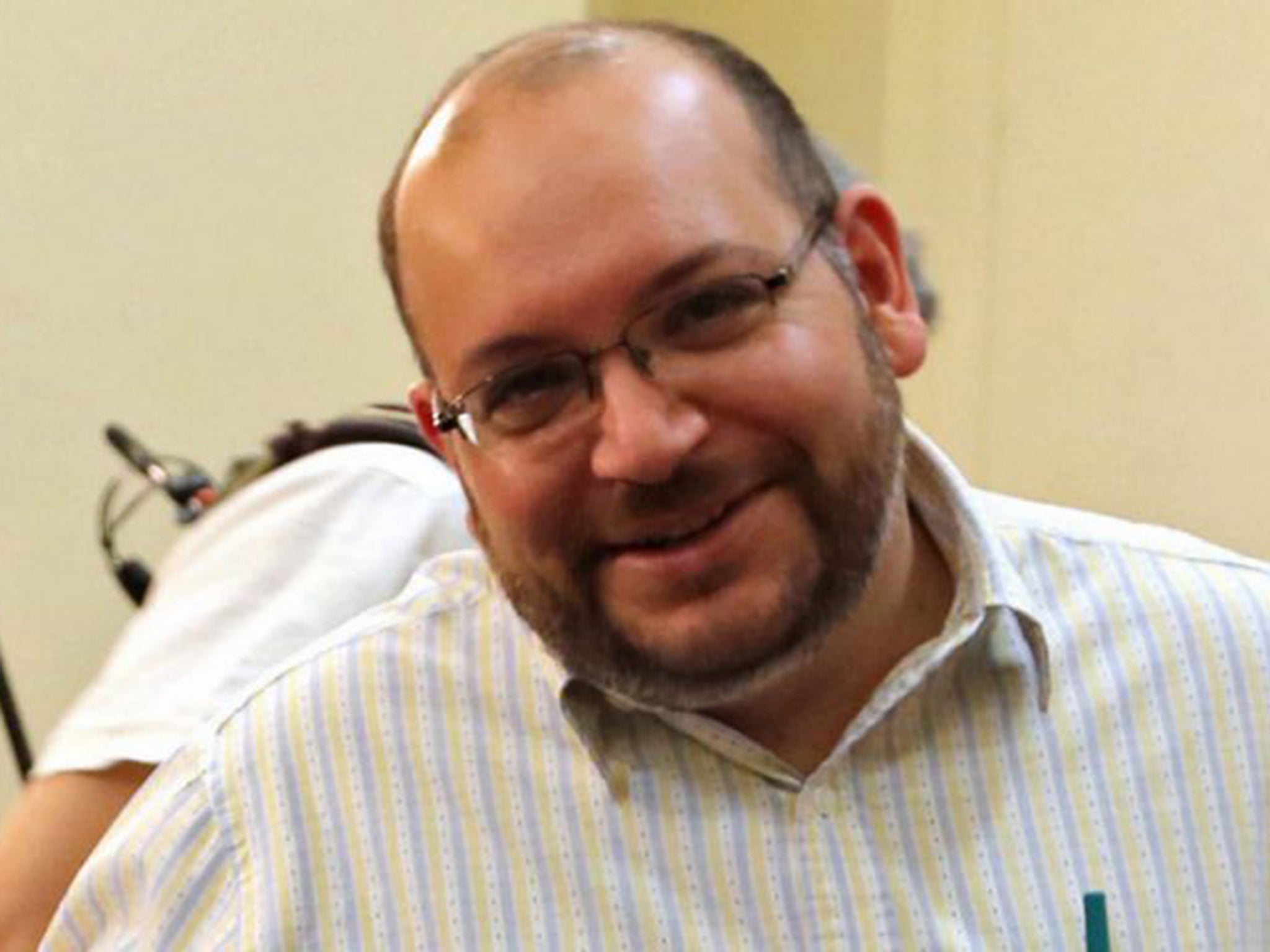
Your support helps us to tell the story
From reproductive rights to climate change to Big Tech, The Independent is on the ground when the story is developing. Whether it's investigating the financials of Elon Musk's pro-Trump PAC or producing our latest documentary, 'The A Word', which shines a light on the American women fighting for reproductive rights, we know how important it is to parse out the facts from the messaging.
At such a critical moment in US history, we need reporters on the ground. Your donation allows us to keep sending journalists to speak to both sides of the story.
The Independent is trusted by Americans across the entire political spectrum. And unlike many other quality news outlets, we choose not to lock Americans out of our reporting and analysis with paywalls. We believe quality journalism should be available to everyone, paid for by those who can afford it.
Your support makes all the difference.On 22 July, 2014, Iranian authorities crashed into the Tehran home of Washington Post Iran correspondent Jason Rezaian and arrested him and his wife, Yeganeh Salehi, also a journalist. Rezaian was taken to Iran’s infamous Evin Prison, where he was put in solitary confinement for months, without a word of explanation to his family or to the outside world. Salehi, an Iranian citizen, was released on bail last fall.
Iran released Post correspondent Jason Rezaian, according to US officials.
Along with Rezaian, three other detained Americans are being released in a swap for seven people imprisoned or charged by the United States.
Rezaian’s incarceration was the longest, by far, for a Western journalist in Iran since the 1979 revolution that brought Ayatollah Ruhollah Khomeini to power.
Throughout his captivity, the 39-year-old California native has been subjected to grueling interrogations and repeated deprivations, forced to stay for weeks in a bare cell without a mattress or even a toilet, family members said after they were allowed to speak with him.
Rezaian has been periodically deprived of medicine for his high blood pressure, family members said, and his physical condition has deteriorated, with dramatic weight loss, back pain and chronic eye and groin infections.
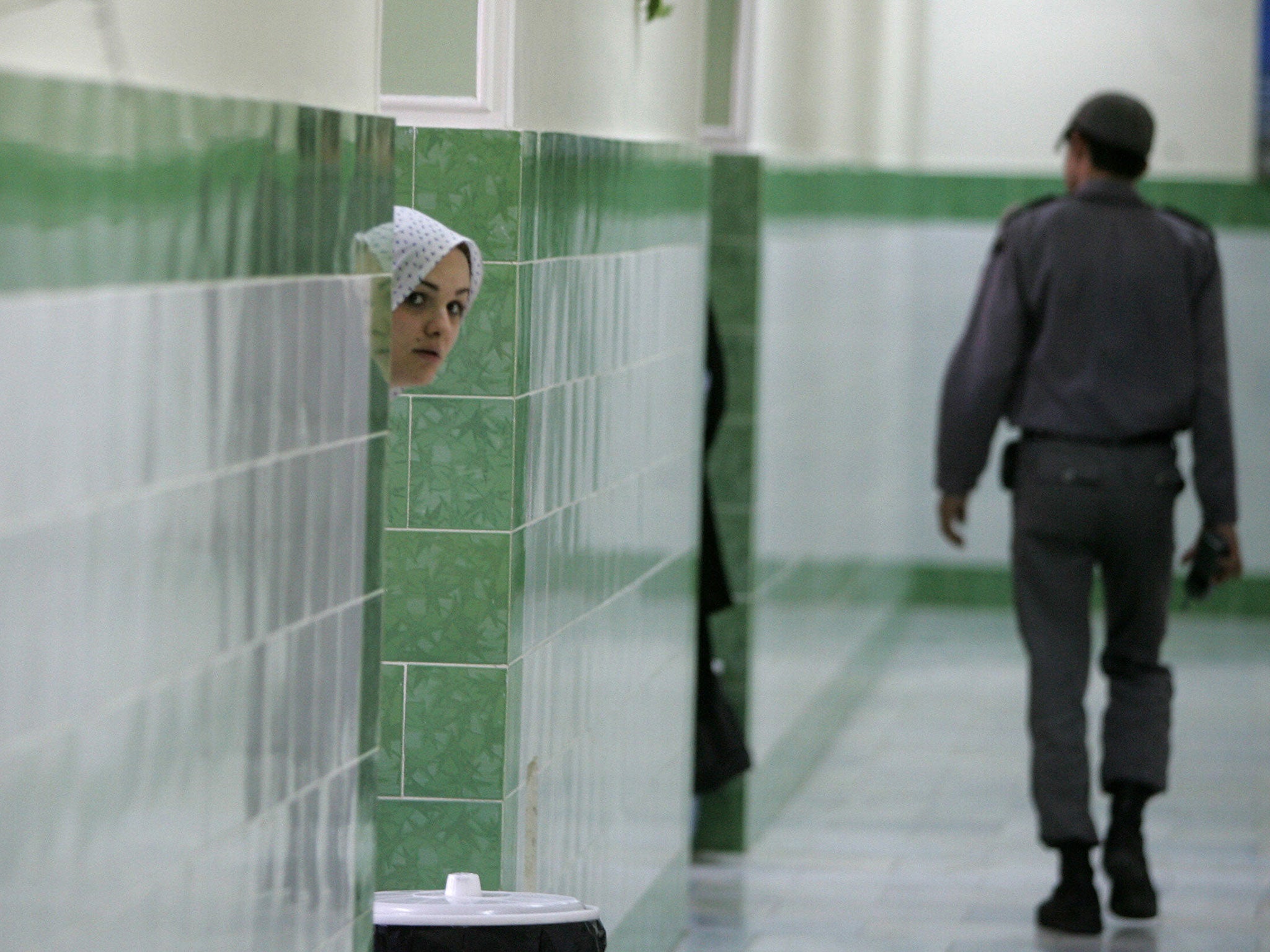
Top US officials, including President Obama and Secretary of State John F. Kerry, have repeatedly demanded Rezaian’s release, echoing similar calls by other Western governments, human rights groups and Washington Post leadership, which has asserted the correspondent’s innocence.
25 July, 2014: Iran confirms that Rezaian has been detained.
29 July, 2014: Wendy Sherman, undersecretary of state for political affairs, tells the Senate Foreign Relations Committee that the United States formally called for the immediate release of Rezaian, his wife and two other US citizens detained the same night.
6 August, 2014: Iran’s deputy foreign minister, Hassan Ghashghavi, says the detention is “an internal matter” and says the country does not acknowledge Rezaian’s US citizenship.
20 August, 2014: A photojournalist who worked with Rezaian and Salehi and also was detained is released on bail.
17 September, 2014: In an interview with NPR, Iranian Foreign Minister Mohammad Javad Zarif says Rezaian is “facing interrogation in Iran for what he has done as an Iranian citizen” but declines to name any crime. He says Iran’s judiciary “has no obligation to explain to the United States why it is detaining one of [Iran’s own] citizens.”
Douglas Jehl, The Post’s foreign editor, responds in a statement that Rezaian and his wife are “fully accredited journalists, and we remain mystified by their detention and deeply concerned about their welfare.”
Ali Rezaian, Jason’s older brother, says in a statement: “Neither I nor my mother have been permitted any communication with Jason. We remain concerned about their health and implore the Iranian authorities to release them in compliance with Iran’s existing laws and constitution.”
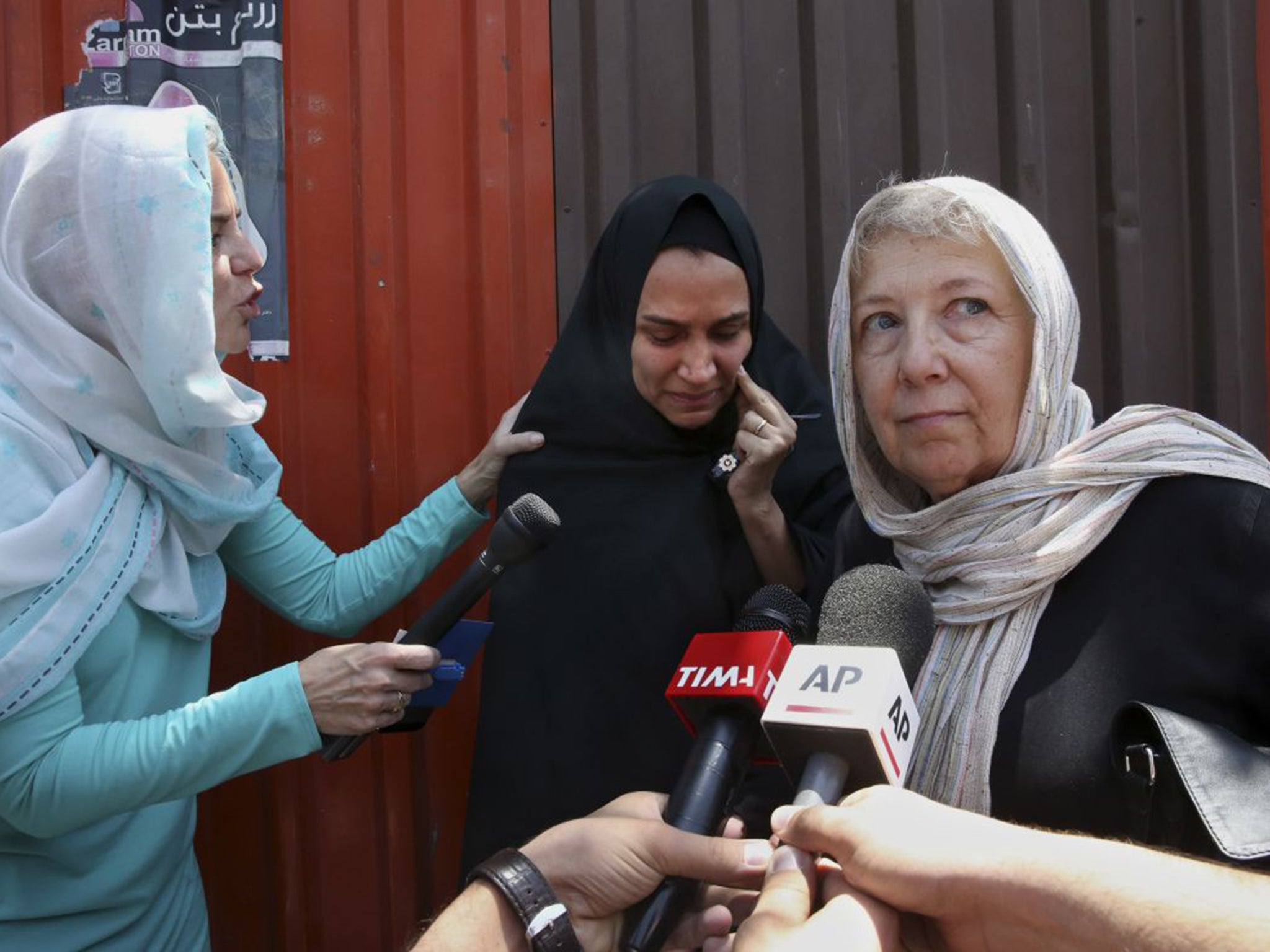
5 October, 2014: Ali Rezaian says Salehi was released on bail during the previous week and was permitted one visit with her husband.
6 December, 2014: After nearly five months of detention, Rezaian is charged after a 10-hour court proceeding that is closed to the public. He is denied legal representation and is accompanied by a government-appointed Farsi translator. He is denied bail.
11 December, 2014: Mary Rezaian appears on video and pleads for her son’s release.
14 January, 2015: Jason Rezaian’s case is transferred to a branch of the Revolutionary Court, which is closely aligned with Iranian intelligence services.
1 February, 2015: Judge Abolghassem Salavati is picked to preside over the trial, according to the International Campaign for Human Rights in Iran. He is one of six judges who are leading a crackdown on journalists and political activists in Iran, according to human rights groups. He formally charges Rezaian, then prohibits his chosen attorney from representing him.
8 February, 2015: At a Munich Security Conference session, Washington Post columnist David Ignatius asks Zarif, the Iranian foreign minister, about Rezaian. “I hope that he will be cleared of the charges in a court of law,” Zarif answers, “and that will be a good day for me.”
12 February, 2015: Ali Rezaian says that Iranian prison authorities have let his brother leave jail briefly to get medical treatment and have permitted his wife to visit and bring books, food and warmer clothes.
12 March, 2015: Boxing legend Muhammad Ali calls for Jason’s release: “During his time as the Washington Post bureau chief in Tehran, Jason used his gift of writing and intimate knowledge of the country to share the stories of the people and culture of Iran to the world. To my knowledge, Jason is a man of peace and great faith, a man whose dedication and respect for the Iranian people is evident in his work.”
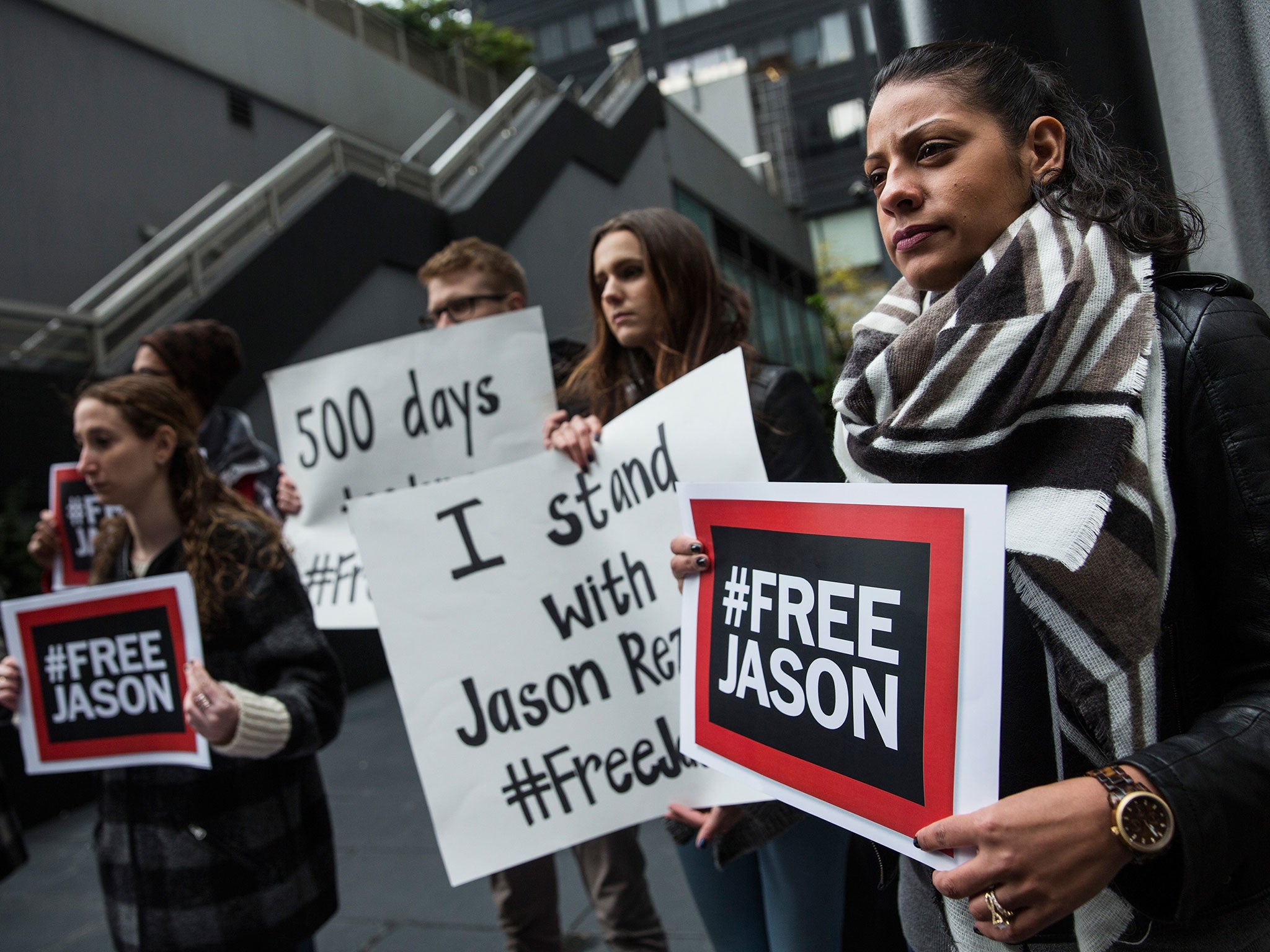
20 April, 2015: Leila Ahsan, Rezaian’s new attorney, holds her first substantive meeting with him and releases a statement in Farsi “based on the indictment” that indicates he is being charged with four crimes: espionage, collaborating with hostile governments, collecting and distributing information about foreign policies “with malicious intent” and “conducting propaganda against the establishment.” Each carries a maximum prison term of 10 to 20 years.
25 April, 2015: Obama, in remarks at the White House Correspondents’ Association dinner in Washington, notes that journalists have been murdered “for nothing more than trying to shine a light into some of the world’s darkest corners.” He added: “We remember the journalists unjustly imprisoned around the world, including our own Jason Rezaian. For nine months, Jason has been imprisoned in Tehran for nothing more than writing about the hopes and the fears of the Iranian people, carrying their stories to the readers of The Washington Post in an effort to bridge our common humanity. As was already mentioned, Jason’s brother, Ali, is here tonight, and I have told him personally we will not rest until we bring him home to his family, safe and sound.”
29 April, 2015: Foreign Minister Zarif, in an interview with Ignatius at New York University, refers to Jason Rezaian as “my friend” and reiterates his hope that the journalist will be “cleared in a court. But he will have to face a court. He is an Iranian citizen.”
11 May, 2015: The Senate unanimously passes a resolution calling on Iran to release Rezaian and other Americans believed to be detained and calling on Obama to “undertake every effort using every diplomatic tool” at his disposal to gain their release.
26 May, 2015: Rezaian’s trial begins and is adjourned after one day. His wife and mother are not permitted to attend the hearing, held outside of public view.
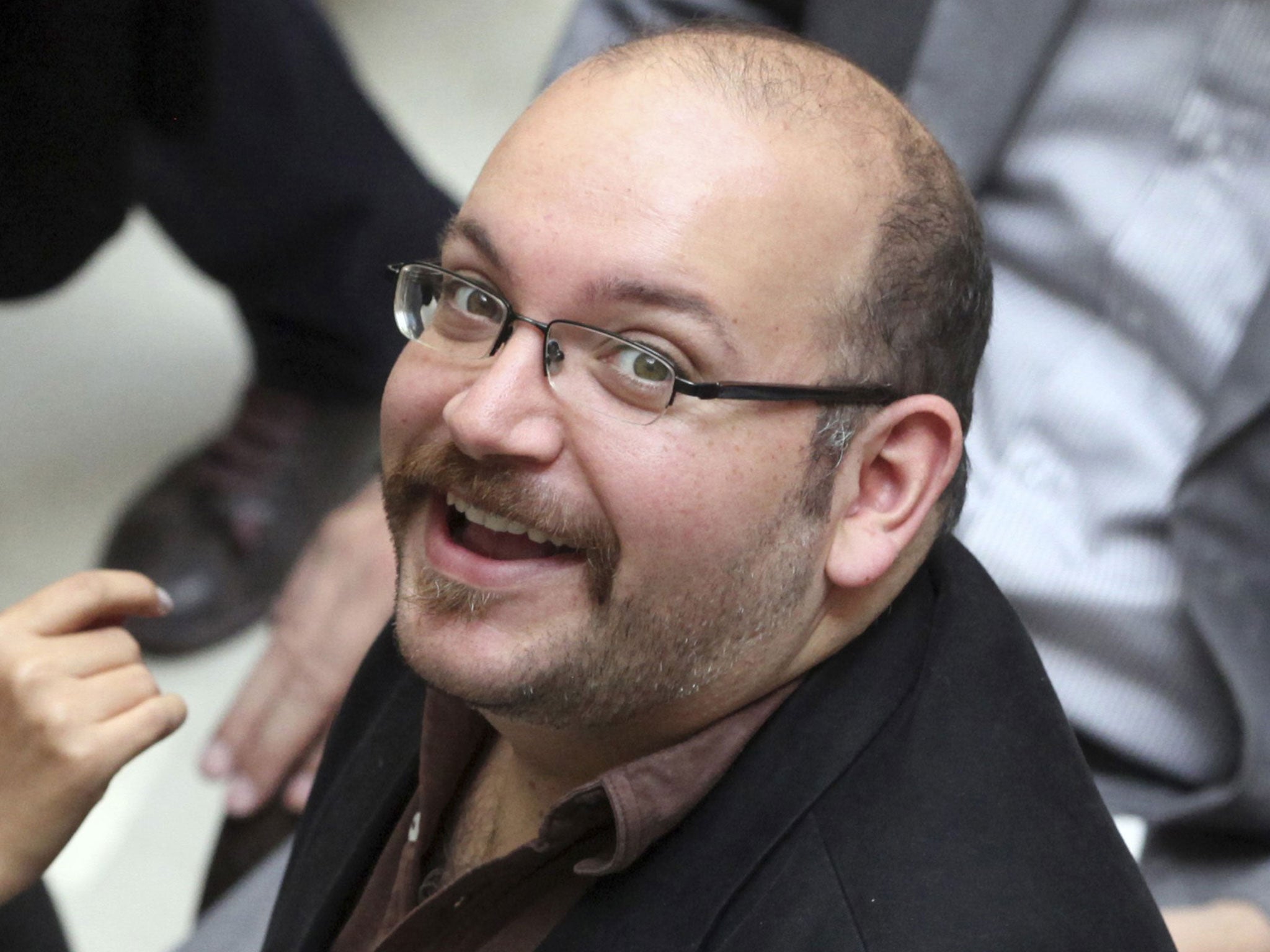
8 June, 2015: A second closed-door hearing ends after three hours. No details are released, including whether Rezaian’s attorney was able to present evidence or cross-examine government witnesses.
Ali Rezaian, brother of Washington Post correspondent Jason Rezaian, talks about his brother’s imprisonment in Iran while testifying before the House Foreign Affairs Committee on June 2. (Chip Somodevilla/Getty Images)
13 July, 2015: A third closed-door hearing takes place. Ahsan, Rezaian’s attorney, is barred from publicly discussing the proceedings and is unable to report what occurred. Post Executive Editor Martin Baron calls on authorities to “deliver a speedy, fair and impartial judgment in Jason’s case — one that could only result in his acquittal, immediate release and a long-overdue reunion with his family.”
14 July, 2015: After a marathon 17 days of talks, the United States and negotiating partners from Britain, France, Germany, Russia, China and the European Union reach a historic agreement with Iran to limit the country’s nuclear program.
17 July, 2015: Speaking on MSNBC, Secretary of State John F. Kerry says: “There was not a meeting that took place, not one meeting that took place — believe me, that’s not an exaggeration — where we did not raise the issue of our American citizens being held. And in fact, it was the last conversation that I had with the foreign minister at the Vienna Center, right before we went out publicly. I talked to him the last time about that.”
20 July, 2015: Ahsan tells the Associated Press that Revolutionary Court officials have told her that Rezaian’s next court session, as yet unscheduled, will “almost certainly” be the last. “Still, it’s not clear how long it will take for the court to issue a verdict on the case after the last session.”
20 July, 2015: The U.N. Security Council unanimously approves a legally binding resolution that creates the basis for lifting the United Nations’ international economic sanctions against Iran.
21 July, 2015: Addressing the Veterans of Foreign Wars in Pittsburgh, Obama again calls for the release of Americans held in Iran: “We are not going to relent until we bring home our Americans who are unjustly detained in Iran. Journalist Jason Rezaian should be released. Pastor Saeed Abedini should be released. Amir Hekmati, a former sergeant in the US Marine Corps, should be released. Iran needs to help us find Robert Levinson.”
22 July, 2015: As Rezaian enters his second year of custody in Evin Prison, The Post petitions the United Nations for “urgent action” to help secure his release. The petition accuses the Iranian government of “flagrant violations of international law” during a year of “arbitrary and unlawful” detention.
10 August, 2015: An Iranian court holds its final hearing in Rezaian’s trial but does not give a clear indication on when a verdict will be reached.
14 August, 2015: U.N. human rights experts issue statements calling for the release of Rezaian. “The arrest, detention and secret trial of Mr. Rezaian violate his rights and intimidate all those working in the media in Iran,” said David Kaye, the U.N. special rapporteur on freedom of opinion and expression.
9 October, 2015: This marks the 444th day of Rezaiain’s improsonment in Iran. He will now “have been held for the same amount of time as US government employees during the Iran hostage crisis of 1979-1981.”
12 October, 2015: Iranian state television reported that Rezaian has been convicted. No other details were available.
25 November, 2015: The Washington Post further expands efforts for Rezaian’s release and files supplementary petition with the U.N Working Group on Arbitrary Detention calling for the Post reporter’s immediate release.
3 December, 2015: This marks 500 days since Rezaian’s arrest.
16 January, 2016: Iran announces the release of Post correspondent Jason Rezaian through an exchange deal with the United States.
The other detained Americans released by Iran, according to Iranian media, included Saeed Abedini and Amir Hekmati.
Hekmati is a US Marine veteran and Arizona native with dual US-Iranian citizenship. He was serving a 10-year sentence after his conviction in a closed trial on charges of “cooperating with hostile governments.” Abedini, an Iranian-born Christian pastor who lived in Idaho, was also released. He was imprisoned since 2012, allegedly for seeking to start churches in private homes.
Less is known about the fate of Robert Levinson, a retired FBI agent who was last seen on Iran’s Kish Island in 2007 after traveling to the country on a CIA contract. An unidentified group released a video of Levinson in an orange prison jumpsuit in 2011, but Iranian officials have repeatedly denied any knowledge of his whereabouts.
Copyright: Washington Post
Join our commenting forum
Join thought-provoking conversations, follow other Independent readers and see their replies
0Comments